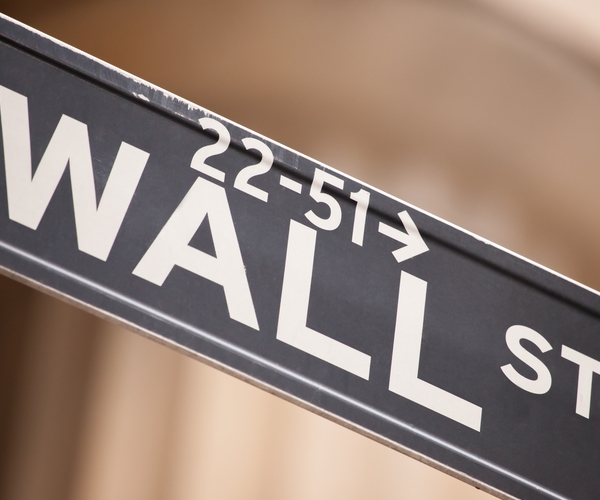US: Dow plunges 1,500 points as WHO declares coronavirus Pandemic
From Newsmax

U.S. stock indexes extended their declines on Wednesday after the World Health Organization classified the coronavirus outbreak as a pandemic. The Dow plunged more than 1,500.
A Reuters report that the White House has ordered federal health officials to treat top-level coronavirus meetings as classified in an unusual step compounded the skittish sentiment on trading floors.
“If you feel the need to embargo information, a lot of people don’t like that, because that makes you think they’re concerned that the numbers are getting increasingly worse, so bad that they feel they need to shield the American public from that information,” said Sal Arnuk, partner and cofounder, Themis Trading in Chatham, New Jersey.
Expectations that President Donald Trump would announce “major” support measures helped Wall Street claw back losses on Tuesday from a bruising sell-off at the start of the week on the back of a collapse in oil prices.
But there have been no announcements, even as the administration discusses measures ranging from tax relief, loan guarantees, reimbursing workers for lost pay and support for the hard hit industries.
The benchmark S&P 500 index is nearly 19% below its all-time peak hit on Feb. 19. If it ends 20% below its record closing high from just three weeks ago, the index would confirm a bear market.
The Dow Jones Industrial Average fell almost 6%, the biggest decliner among the major indexes, also weighed down by a 13.5% tumble in shares of Boeing Co. The planemaker plans a full drawdown of an existing $13.8 billion loan as early as Friday, a source told Reuters.
The stock is set for its biggest three day drop since the 9/11 attacks.
Rate-sensitive U.S. lenders tumbled, with the banks index down 4.3%. The U.S. Federal Reserve is widely expected to cut rates for the second time this month when it meets next week.
The utilities sector dropped about 5.4% while other major S&P sectors shed at least 3.6%.
Just after 3 p.m. ET, the Dow Jones Industrial Average plunged 1,535 points, or 6.1%, to 23,482. The S&P 500 was down 158 points, or 5.5%, at 2,723. The Nasdaq Composite was down 437 points, or 5.2%, at 7,907.
Nike Inc fell 6.5% after rivals Adidas and Puma flagged a sales hit in China due to the outbreak.
DXC Technology Co edged higher after the IT and consulting services provider said it would sell its healthcare technology business to private equity firm Veritas Capital for $5 billion.
Declining issues outnumbered advancers for a 12.61-to-1 ratio on the NYSE and for a 6.83-to-1 ratio on the Nasdaq.
The S&P index recorded no new 52-week high and 79 new lows, while the Nasdaq recorded five new highs and 541 new lows.
GLOBAL CHAOS CONTINUES
The dollar weakened and global equities markets slid again.
The strong stock rally on Tuesday petered out in Europe, even after the Bank of England joined other central banks in cutting interest rates, as investors pondered how much monetary and fiscal stimulus can dampen the epidemic’s economic toll.
Britain announced a $39 billion war chest to soften the impact of the coronavirus after the BofE cut rates by half a percentage point. Italy, the hardest hit country outside of China, said it might further tighten already draconian curbs.
Economic stimulus will take time, while in the interim the virus spreads and more businesses suspend financial guidance, said Peter Tuz, president of Chase Investment Counsel in Charlottesville, Virginia.
“You got uncertainty ramped up again this morning and it shows no sign of abating,” Tuz said. “The volatility due to the virus and the response to the virus is at very severe levels. I don’t see it really calming down until our arms are around the number of people who are affected in the U.S.,” he said.
As of Tuesday’s close, the recent rout had erased $8.1 trillion in value from global stock markets.
MSCI’s U.S. centric gauge of stocks across the globe shed 3.17% while the pan-European STOXX 600 index lost 0.71%.
The dollar resumed its decline against the safe-haven Japanese yen and Swiss franc and gold rebounded, but was well off the $1,700 level it briefly hit Monday.
Sterling initially fell as much as 0.4% against the dollar and 1.2% against the euro after the BoE cut its benchmark rate by 50 basis points, to 0.25%. 1.1274
The Japanese yen strengthened 0.86% versus the greenback at 104.77 per dollar.
After a decade of extraordinary monetary policy, investors say the impact of easier policy has limits and increased government spending must be the dominant policy response to the economic consequences of the outbreak.
A key gauge of long-term euro zone inflation expectations dropped to another record low, in what analysts said suggested investors were positioning for deflation risks.
Benchmark U.S. 10-year Treasury yields rose 5 basis points to yield 0.804%, more than double Monday’s record low yield of 0.3180%.0.7965
German government bond yields rose after the BoE cut supported sentiment, while Italian yields — which had shot up on worries the country with Europe’s worst outbreak of the virus is sliding into a recession — tumbled as much as 20 basis points as bets grew on ECB stimulus.
Oil prices fell after Saudi Arabia and the United Arab Emirates announced plans to boost production capacity and OPEC and the U.S. Energy Information Administration (EIA) slashed oil demand forecasts because of the coronavirus outbreak.
Brent crude was down $1.03 to $36.19 a barrel, while U.S. West Texas Intermediate (WTI) crude was off 83 cents to $33.53.
Material from Bloomberg, Reuters and the Associated Press has been used in this report.
© 2020 Newsmax Finance. All rights reserved.
For more on this story go to; https://www.newsmax.com/finance/streettalk/wall-street-stock-market-dow/2020/03/11/id/957825/





